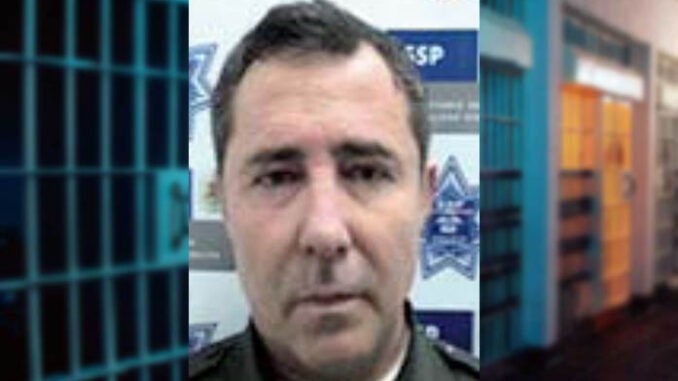
The one-time top Sinaloa Cartel operative who controlled the region around Douglas, Arizona and Agua Prieta, Sonora has agreed to a 22-year federal prison sentence after admitting his role in trafficking millions of dollars worth of drugs into the United States from 1991 to 2011.
Marco Antonio Paredes Machado, nicknamed Marquitos, pleaded guilty last month to conspiring to distribute large quantities of Columbian cocaine and nearly 100 tons of marijuana across the U.S. The charges involved indictments filed against several defendants in federal courts in Michigan in 2005 and Washington D.C. in 2012.
Parades-Machado, 55, was arrested near Mexico City in January 2011 on a U.S. extradition warrant. He and his Tucson attorney Stephen Ralls signed the 19-page plea agreement less than one month after a U.S. District judge in Michigan denied a defense motion to dismiss the 2005 case over allegations that Mexican authorities waterboarded Paredes-Machado after his arrest.
According to the plea deal, Paredes-Machado admitted directing several people to further the drug conspiracy and that he personally engaged in collecting payments for largescale drug shipments “which typically involved tens of millions of dollars.” Sentencing guidelines call for 27 to 33 years in prison, but the plea deal negotiated with the U.S. Department of Justice stipulates to only 22 years.
U.S. District Judge Victoria Roberts has set sentencing for Feb. 5, 2020 at the U.S. District Courthouse for Eastern Michigan in Detroit. There is no mention in the plea agreement of whether the lesser sentence was offered in exchange for past or future testimony.
Paredes-Machado remained in Mexico from the time of his 2011 arrest until his first U.S. court appearance in September 2015. Then in October 2018, Ralls alleged that his client was tortured within hours of his arrest -including waterboarding, beatings, and threats of violence against his wife- for benefit of the U.S. Drug Enforcement Agency, which funded various Mexican law enforcement operations. Several DEA agents interviewed Paredes-Machado after his arrest, including one from Sierra Vista.
Ralls contended dismissal of the 2005 charges was justified due to “outrageous government conduct” for supporting the torture, which purportedly caused Paredes-Machado to make incriminating statements about himself and others. Prosecutors with the U.S. Attorney’s Office later agreed to not use a recording of the statements as evidence if the case went to trial.
In August, Roberts noted it was “undisputed that the United States was involved in the investigation leading up to Paredes-Machado’s arrest” and that some Mexican officers alleged to have been involved in torture “may have received training and funding from the United States government.”
However, the judge ruled dismissal of the 2005 charges was “not an available remedy for any such abuse.” Paredes-Machado and Ralls signed the plea agreement three weeks later to resolve both cases. There is no mention of whether Paredes-Machado will receive credit toward his sentence for the time he has spent in custody awaiting trial.
Court records show Paredes-Machado was previously indicted on federal drug charges in Arizona in 1989, 1995, 1996, and 1999. All of those cases were dismissed after several years because authorities were unable to execute the arrest warrants.
After Paredes-Machado’s arrest in 2011, his position as the Sinaloa Cartel’s plaza boss in Agua Prieta was filled by Jose Javier Rascon Ramirez. In June, Rascon Ramirez was one of several people killed during a wave of cartel violence along the Arizona – Sonora border.
